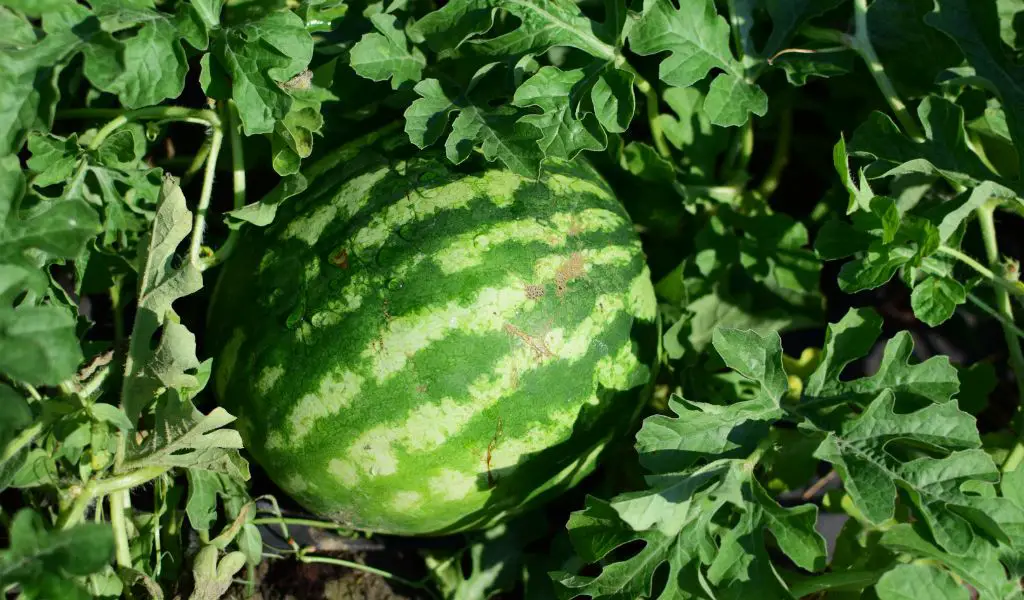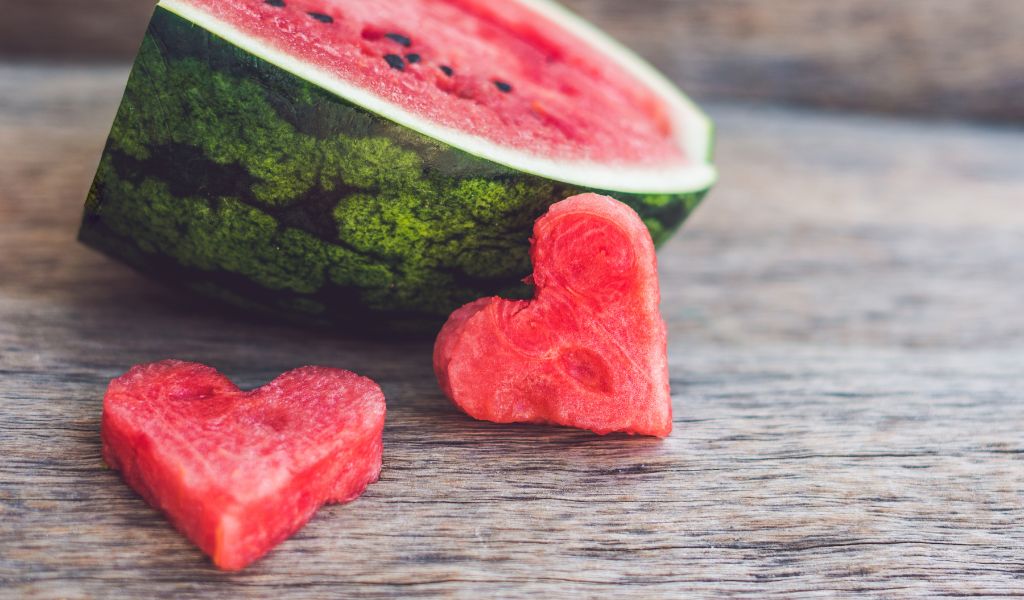Are you a watermelon lover who has ever wondered if it’s possible to plant seeds from a store-bought watermelon and grow your own juicy fruits?
Well, you’ve come to the right place! In this article, we will delve into the intriguing world of watermelon seeds and explore whether you can successfully cultivate watermelon plants from the seeds found within those delicious store-bought fruits.
So, grab a slice of watermelon, sit back, and let’s find out if you can turn those seeds into a fruitful garden!
Can You Plant Seeds from Store-Bought Watermelon?
Watermelon seeds possess the potential for growth, and planting them is indeed a possibility.
However, whether or not you can effectively plant and grow watermelon plants from seeds obtained from a store-bought watermelon depends on several factors.
Let’s dig deeper and discover what these factors are and how they influence the success rate of planting watermelon seeds.
Factors Affecting the Viability of Store-Bought Watermelon Seeds

Seed Variety and Hybridization
Different watermelon varieties, including hybrids, exhibit varying levels of viability when it comes to planting their seeds.
Hybrid watermelons, which are the result of cross-pollination between two different watermelon varieties, may produce seeds that do not grow true to the parent plant.
This means that the resulting watermelon plants might not possess the same characteristics, flavor, or quality as the original fruit.
Seed Maturation and Ripeness
The stage of seed maturation and ripeness at the time of harvesting plays a crucial role in their viability.
Seeds from an unripe watermelon may not have fully developed and might fail to germinate.
It is advisable to choose a ripe watermelon for seed extraction, as the seeds will be more likely to produce healthy plants.
Seed Treatment and Preservation
Watermelon seeds available in stores often undergo treatments such as drying and processing for packaging purposes.
These treatments may affect the viability and germination potential of the seeds.
Additionally, the duration and conditions of seed storage can impact their ability to sprout and grow.
How to Plant Watermelon Seeds from Store-Bought Watermelon?
Assuming you have a ripe and desirable watermelon to harvest seeds from, here’s a step-by-step guide on how to plant those seeds and nurture them into flourishing watermelon plants:
Seed Extraction
To extract the seeds, cut the watermelon into slices and remove them carefully using a spoon or knife.
Place the seeds in a bowl, and rinse them gently to remove any flesh or pulp. Avoid using soap or any chemical cleaning agents, as these may harm the seeds.
Seed Drying
After rinsing, spread the watermelon seeds on a paper towel or any absorbent material to dry.
Make sure they are not touching each other, as this could cause them to stick together and hinder germination. Allow the seeds to air dry completely for a few days.
Seed Preparation
Once dry, you can further enhance the chances of successful germination by scarifying the seeds.
Gently rub the seeds with a fine-grit sandpaper or carefully nick the seed coat with a sharp knife.
This process aids in breaking through the tough seed coat, enabling quicker water absorption and sprouting.
Seed Planting
Prepare a suitable garden bed or container with well-draining soil.
Watermelon plants thrive in rich, loamy soil that is slightly acidic with a pH level of around 6.0 to 6.8.
Dig a hole or create a shallow furrow in the soil, approximately 1 inch deep.
Place the prepared watermelon seeds in the hole, spacing them out about 2 to 3 inches apart.
Cover the seeds with soil and gently pat it down to ensure good soil-to-seed contact.
Water the planted seeds thoroughly, keeping the soil consistently moist but not waterlogged.
Seedling Care
Watermelon seedlings require warmth and sunlight to germinate and grow.
Find a sunny spot in your garden or provide artificial grow lights if planting indoors.
Ensure the temperature remains between 75°F to 85°F (24°C to 29°C) for optimal growth.
As the seedlings emerge, thin them out if necessary, leaving the healthiest and strongest plants spaced about 12 to 18 inches apart.
Water the seedlings regularly, keeping the soil evenly moist but avoiding excessive watering.
Proper Nutrition and Maintenance
Watermelon plants are heavy feeders and benefit from regular fertilization.
Apply a balanced, slow-release fertilizer according to the manufacturer’s instructions, or use organic options like compost or well-rotted manure.
Supplementing with a nitrogen-rich fertilizer during the early growth stages can promote vigorous foliage development.
Maintain a weed-free garden bed by regularly removing any competing plants or weeds.
Mulching around the watermelon plants can help suppress weed growth, retain soil moisture, and regulate soil temperature.
Frequently Asked Questions (FAQs)
Here are some commonly asked questions about planting seeds from store-bought watermelon:
Can I use seeds from any watermelon I buy at the store?
While you can try using seeds from any watermelon, it’s best to choose a variety that is known for good flavor and quality.
Do I need to dry the watermelon seeds before planting?
Yes, drying the seeds allows for better storage and germination. Make sure they are completely dry before planting.
How long does it take for watermelon seeds to germinate?
Watermelon seeds typically germinate within 7 to 10 days under optimal conditions. However, germination time may vary depending on factors such as temperature and seed quality.
Can I plant watermelon seeds directly in the garden?
Yes, you can plant watermelon seeds directly in the garden if the soil temperature is consistently above 70°F (21°C) and the danger of frost has passed.
Is it possible to grow seedless watermelons from store-bought seeds?
No, seedless watermelons are typically developed through a complex hybridization process and cannot be grown from store-bought seeds.
How long does it take for store-bought watermelon plants to produce fruits?
On average, it takes around 70 to 90 days for watermelon plants to produce fruits from the time of planting.
Conclusion and final thoughts 💭
In conclusion, it is possible to plant seeds from store-bought watermelons and grow your own watermelon plants.
However, the success rate may vary depending on factors such as seed variety, ripeness, and storage conditions.
By following the proper seed extraction, preparation, and planting techniques, along with providing suitable growing conditions, you can increase your chances of growing delicious watermelons in your own garden.
Remember to choose ripe watermelons, dry the seeds properly, and provide the necessary care for the seedlings.
With patience and attention, you can enjoy the satisfaction of growing your own juicy watermelons from seeds obtained from a store-bought fruit.




